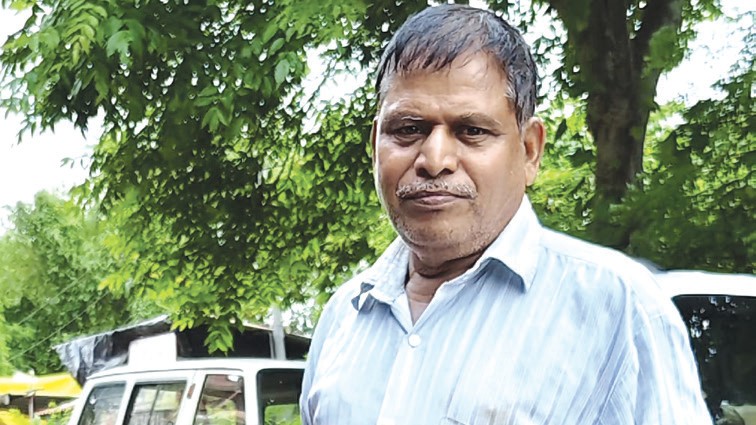

JENIFER FERNANDES
joseph@herald-goa.com
ALDONA: In a quiet corner of Aldona, 67-year-old Rohidas Mandrekar continues to spin the wheels of his humble yet dignified legacy — repairing bicycles and performing basic two-wheeler maintenance. What began in the early 1980s as a simple job to help his family survive has today become a lifetime of purpose, perseverance, and pride in traditional work.
Rohidas’s journey started in 1983 with just a handful of rented bicycles and a keen eye for cycle repair. “It was a humble beginning,” he recalls. “But every broken chain, every flat tyre taught me something.” Slowly and steadily, he sharpened his skills and saved enough to set up a proper cycle repair shop — a place where, even today, he works with dedication.
From overhauling old steel-framed cycles to adjusting modern gear systems and fixing disc brakes, Rohidas handles it all with quiet confidence. “Cycling has changed,” he says, “but my commitment to quality service has not.” His workshop is more than just a repair stop — it is a symbol of self-reliance , where each cycle leaves safer, smoother, and ready for the road.
He recalls the early days when a new cycle cost just Rs 100. “They were heavy, sturdy, and simple — no gears or fancy parts. But they had a charm of their own,” he smiles. Today’s bicycles, he notes, are sleek, technologically advanced, and even come with electric assist. “They’ve become symbols of fitness and leisure more than necessity.”
Indeed, the very meaning of the cycle has shifted. Once the most accessible mode of transport — often the only one in a household — bicycles were central to daily life. Now, with modern conveniences and rising affluence, they’re seen more as lifestyle tools. “People used to pedal because they had no choice. Today, they pedal for goodhealth,” he observes.
But Rohidas isn’t just a cycle mechanic. His story is deeply woven into the socio-cultural shifts of Goa. He left school after Class 4, forced into work at the age of 11 when his father passed away. His elder
brother was the only breadwinner at the time, and Rohidas stepped in to share the weight. “It wasn’t easy, but it was necessary,” he reflects.
He started small — tending cows, helping his mother in the fields, and eventually working in a hotel. “There was a mechanic nearby. Every day, I’d take him tea and quietly watch him work,” he says. One day, he asked to learn. The mechanic agreed — but without pay. “That didn’t matter to me. Learning the skill was more valuable than money.”
Eventually, he opened a small store and began renting cycles. Business boomed — until motorbikes entered the scene and changed the game. He adapted, shifted focus to repairs, and found his true calling. “I used to rent a cycle for 25 paise per hour. It sounds small now, but it helped me stand on my own feet.”
He even tried his hand at farming once, investing time, effort, and money — but the returns were disheartening. “There are barely any fields left to work on now,” he says. Farming, like many traditional livelihoods, is struggling to survive.
Today, Rohidas believes that you can still build a sustainable life through traditional skills — but only if you’re willing to work hard and do it yourself. “You can’t succeed if you rely on hiring someone else to do your job. You have to be hands-on.”
His observations about changing mindsets are pointed. “Many Goans don’t want to do this kind of work anymore. They say there are no jobs, but they refuse the ones that exist — ones we used to do with pride.” Instead, he sees migrants filling these roles, building steady livelihoods while locals chase salaried jobs that often pay less.
“There’s no shame in honest work,” he says firmly. “Traditional occupations have dignity. If we keep ignoring them, we’ll lose not just our culture, but also our independence.”
Rohidas knows the trade-offs of chasing greener pastures and prefers the life of an entrepreneur . “In Goa, I have freedom. I’m my own boss. If I want to step out for five minutes, I don’t need permission. That kind of independence is priceless.”
Rohidas also feels deeply for the younger generation. He urges children to learn traditional skills, but says many shy away. “They don’t want to dirty their clothes or get grease on their hands. But business comes with hard work, loss, and risk. You have to earn success — no shortcuts.”
He still sources materials from Mapusa and laments the declining quality of modern cycles. “Earlier, the brakes were strong, parts lasted years. Now, even a new cycle rusts quickly. I had a cycle that lasted 35 years — it still looks new today.”
For Rohidas, the lesson is clear: value your roots, and don’t be afraid of working with your hands. “Instead of running after jobs, start something of your own,” he says. “You may not wear a suit, but you’ll stand tall with pride. The satisfaction of building something — with your own two hands — is far more rewarding than any salary slip.”